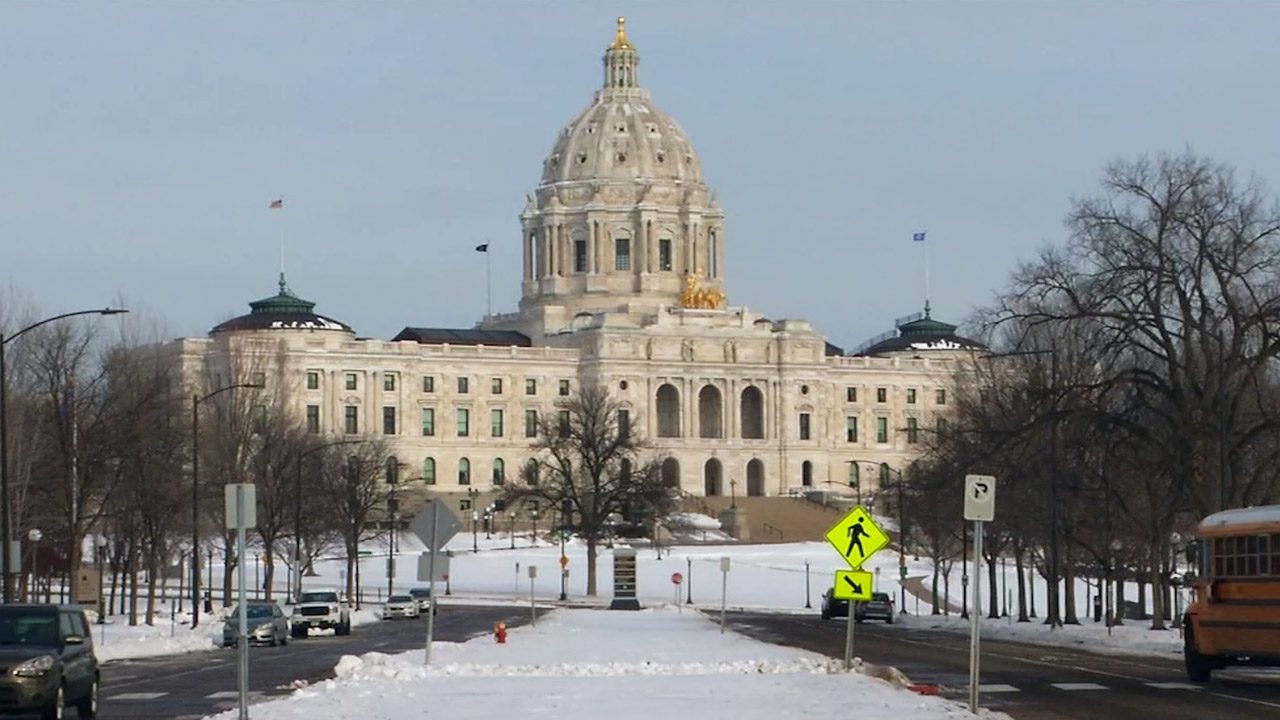Minnesota Legislature to return with much done, much to do

(WDIO File)
ST. PAUL, Minn. (AP) — The Minnesota Legislature will return from its Easter-Passover break on Tuesday with a remarkably high number of bills already signed into law, but with plenty of work ahead to complete a balanced two-year budget in the six weeks before the mandatory adjournment on May 22.
Democrats seized the moment when lawmakers convened in January, using their new control of both chambers and the governor’s office to rush through a slew of priorities that they couldn’t pass when Republicans controlled the Senate. Gov. Tim Walz proclaimed: “The era of gridlock is over.” But the speed has frustrated Republicans, who feel steamrollered and accuse Democrats of going on a spending spree and increasing the size of government instead of providing permanent tax relief.
An updated forecast in February put Minnesota’s budget surplus at an enormous $17.5 billion. Walz and Democratic leaders agreed last month on broad budget targets that add up to nearly $17.9 billion in new spending, including $3 billion for tax cuts. Hammering out the details is lawmakers’ main task in the home stretch of the 2023 session.
What have lawmakers accomplished and what’s still in the works?
ABORTION
Minnesota Democrats credit voter anger over last summer’s U.S. Supreme Court ruling striking down Roe v. Wade for their strong showing in the November elections. So they made abortion rights one of their priorities for the session. Walz enacted the right to abortion and other reproductive health care in January, signing a bill meant to ensure that Minnesota’s broad abortion rights protections remain in place.
Other bills are still advancing, including one to repeal restrictions declared unconstitutional by a judge last summer, and to fortify Minnesota’s status as a refuge for patients from states who come for abortions. Republicans say all these bills leave Minnesota with no limits on abortion at all.
TAXES
House and Senate committees will roll out the main tax bills soon. Top Democrats have softened on the governor’s proposal for direct tax rebate payments and are ready to scale back taxation of Social Security to spare more residents. But they’ve been cold to calls by Republicans and some Democrats to eliminate the tax completely, saying the benefits would go to the rich.
The governor’s budget and some other proposals also include tax increases, such as bumps in license fees, and local or metro-wide sales taxes earmarked for transportation, housing and other projects. Proposed increases in fishing license and state park fees have hit bipartisan opposition in the Senate.
TRANS RIGHTS
The House strengthened protections for transgender children and their families who come for gender-affirming care by making Minnesota a “trans refuge state,” bucking a national backlash against transgender rights. The bill, which is still in committee in the Senate, would firm up protections covered by an executive order that Walz signed.
FREE LUNCHES
Breakfasts and lunches will be free to all students in K-12 public and charter schools starting in the next school year, regardless of family income. Lawmakers passed and the governor signed legislation for the state to cover the cost.
PAID LEAVE
A paid family and medical leave program has had numerous hearings and has several to go before it reaches either floor. It would partially replace up to 12 weeks of wages in a 52-week period to care for a sick family member or a newborn or adopted child, and up to 12 weeks for an employee’s own illness. Republicans and business groups object because it would be funded by a 0.7% payroll tax.
BONDING
A Democratic effort to pass a $1.9 billion public works borrowing package known as a bonding bill that cleared the House failed to get the necessary GOP votes in the Senate to provide the required 60% supermajority. Senate Republicans want tax cuts in exchange. Democrats have threatened to pass an all-cash projects bill instead, which would not require GOP votes.
ELECTIONS
Walz signed a bill to restore voting rights to felons when they leave prison instead of when they’re off probation. More than 55,000 Minnesotans will benefit. Supporters say it will help reintegrate former inmates who are disproportionately people of color. Broader legislation to ease registration and voting is approaching floor votes. It would allow 16-and-17-year-olds to pre-register. It would also penalize people who intentionally spread disinformation to discourage Minnesotans from voting, and provide new protections for election workers.
GUN SAFETY
Two gun safety proposals finally got hearings in a Senate committee where they died in previous sessions when the GOP was in control. It’s unclear if they can pass on the Senate floor, where Democrats now hold a one-seat majority. One would expand criminal background checks for gun transfers. A “red flag” law would let authorities temporarily take guns from people who are a danger to themselves or others. In the House, the two measures were folded into a public safety bill.
ENVIRONMENT
Minnesota utilities must get 100% of their electricity from carbon-free sources by 2040. Walz said when he signed the bill that he’s confident it will stand up against a threatened lawsuit from coal- and gas-producing North Dakota. His administration also wants to restrict nonessential uses of “forever chemicals” known as PFAS.
MARIJUANA
Legislation to legalize recreational marijuana has cleared more than 20 committees between the House and Senate but has more to go. While the House passed a cannabis bill last year, it’s not clear if there will be enough support on the Senate floor.
SPORTS BETTING
It’s an even-money wager on legalizing sports betting. Tribes could offer in-person betting at their casinos and remote wagering via mobile devices. The big question is whether supporters can find enough votes in the Senate, where some lawmakers want to give the state’s two horse tracks a piece of the action.
All contents © copyright 2023 Associated Press. All rights reserved